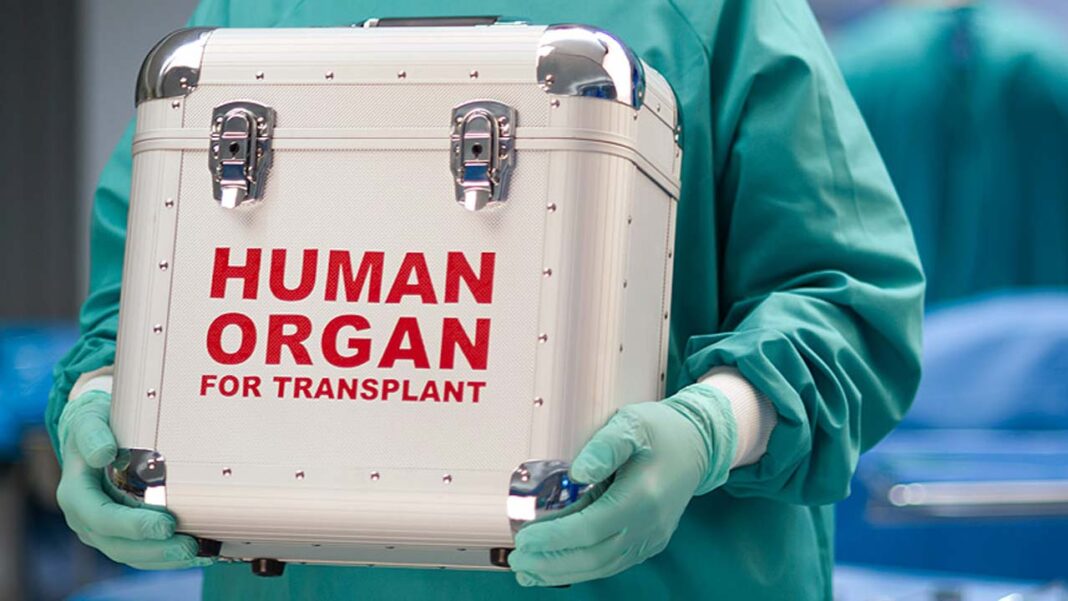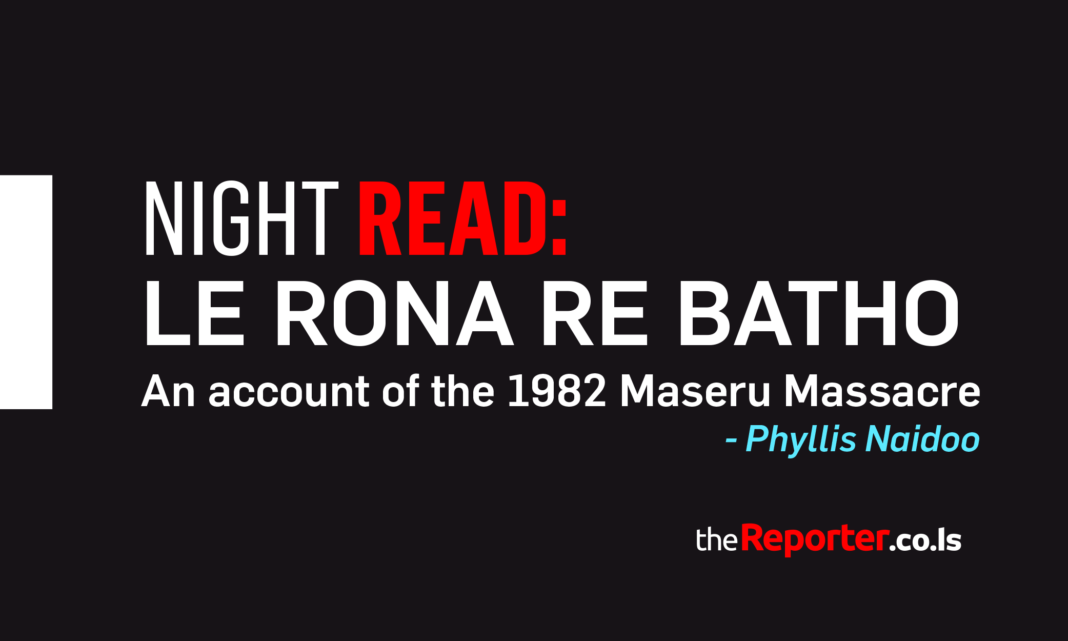By ‘Majirata Latela and Neo Mathibe
- Prices of human body parts skyrocket
- This could lead to escalation of body trafficking in Lesotho
- Statistics not readily available because the crime is hard to detect
Recent reports of increase in the prices of certain body parts on the global black market should jolt Lesotho into high alert, especially after revelations of the steady and unbridled escalation of human trafficking in the country.
Organ trafficking, a lucrative global illicit trade, is often a lesser discussed form of human trafficking among anti-human trafficking stakeholders due to its intricate and often stealth nature.
World Health Organisation reports indicate that the transplantation of healthy organs into persons, whose own organs have failed, improves and saves thousands of lives every year. But demand for organs has outstripped supply, creating an underground market for illicitly obtained organs.
The United Nations has recently alerted people that the black market for parts of the human body is booming in the Middle East. A kidney now costs 262,000 dollars (131 million CFA francs); the heart costs 119,000 dollars (60 million CFA francs) and the liver costs 157,000 dollars (79 million CFA francs).
“Beware of fake foreign agencies promising to make you work abroad. They process your papers, pay your plane ticket and just take you abroad pretending they want to find you a job, but instead, they kill their victims, recover all the precious parts of their bodies. Many people have been offered jobs in the Middle East and so far their families have been unable to locate them. Let our children and grandchildren become aware of these devices of the devil by sharing,” reads a UN statement warning people of organ transplants.
Like other victims of trafficking in persons, those who fall prey to traffickers for the purpose of organ removal may be vulnerable by virtue of poverty, for instance. One factor that is distinct in this form of trafficking in persons is the profile of culprits; while some may live solely from criminal trafficking activities, others may be doctors, nurses, ambulance drivers and health care professionals who are involved in legitimate activities when they are not participating in trafficking in persons for the purpose of organ removal.
The transnational organized crime syndicates are involved in trafficking people for the purpose of organ removal and the organs themselves. The Trafficking in Persons Protocol supplementing the Transnational Organized Crime Convention includes trafficking in persons for the purpose of organ removal.
Researches by the ministry of home affairs Lesotho have revealed that there are foreigners that come into the country and act like they are doing legit business while also running illegal businesses in the background. “There are people who attend these Muslim churches, who are suspected of doing this trafficking, and we will be investigating them.”
The United States 2020 Trafficking in Persons Report (Lesotho) illustrates the extent to which human trafficking in Lesotho is entrenched and institutionalized, thus threatening Lesotho’s chances of Millennium Challenge Corporation (MCC) Compact Development Grant Agreement worth $5.78 million.
With the current trend of organ harvesting and black market success due to it, there are a lot of factors that could render countries like Lesotho becoming a breeding ground for human trafficking. Covid-19 is another great factor that could add to the trafficking of human persons for various reasons.
Commenting on organ harvesting and measures taken to curb human trafficking in Lesotho, the officer commanding the Police Child and Gender Protection Unit, Senior Inspector Beleme Moerane said there has not yet been any reported case of organ harvesting in trafficked persons.
However, he did mention that there are a couple of cases of ritual murders in the country and this could be considered a trafficking because any case that involves the removal of people’s bodies or their parts to benefit the another is regarded as human trafficking.
Moerane confirmed that the organ trade on the black market happens mostly in Asian countries, but is very rare in Lesotho. However, he warned this does not mean Basotho should drop their guard but should brace themselves for anything.
“Seven human trafficking cases have been prosecuted by the courts since 2011. Two resulted in convictions of a Chinese and an Ethiopian national, while another two were not successful due to lack of sufficient evidence.
“We are working jointly with the Free State police in neighouring South Africa to sensitize Lesotho citizens residing in the Free State on human trafficking and how to avoid becoming victims.
“Yes it is true the organ trade is booming on the black market, but we are yet to record a case. We are, however, still facing cases of human abduction for sexual exploitation and labour exploitation.” Moerane said.
According to the World Health Organisation, kidney transplants are carried out in 91 countries. Around 66 000 kidney transplants, 21 000 liver transplants and 6000 heart transplants were performed globally in 2005. The access of patients to organ transplantation, however, varies according to their national situations, and is partly determined by the cost of health care, the level of technical capacity and, most importantly, the availability of organs.
The shortage of an indigenous “supply” of organs has led to the development of the international organ trade, where potential recipients travel abroad to obtain organs through commercial transactions. The international organ trade has been recognized as a significant health policy issue in the international community.
A World Health Assembly resolution adopted in 2004 (WHA57.18) urges Member States to “take measures to protect the poorest and vulnerable groups from ‘transplant tourism’ and the sale of tissues and organs” Despite growing awareness of the issue, the reality of the international organ trade is not well understood due to a paucity of data and also a lack of effort to integrate the available information.
There are other forms of international organ trade that demand attention such as cases where both recipients and donors from different countries move to a third country. More than 100 illegal kidney transplants were performed at St. Augustine Hospital in South Africa in 2001 and 2002; most of the recipients came from Israel, while the donors were from Eastern Europe and Brazil. The police investigation in Brazil and South Africa revealed the existence of an international organ trafficking syndicate. These cases may involve human trafficking for the purpose of organ transplantation. Unlike cell tissues, no confirmed report on transplant organs being trafficked after their removal was found in this survey.









